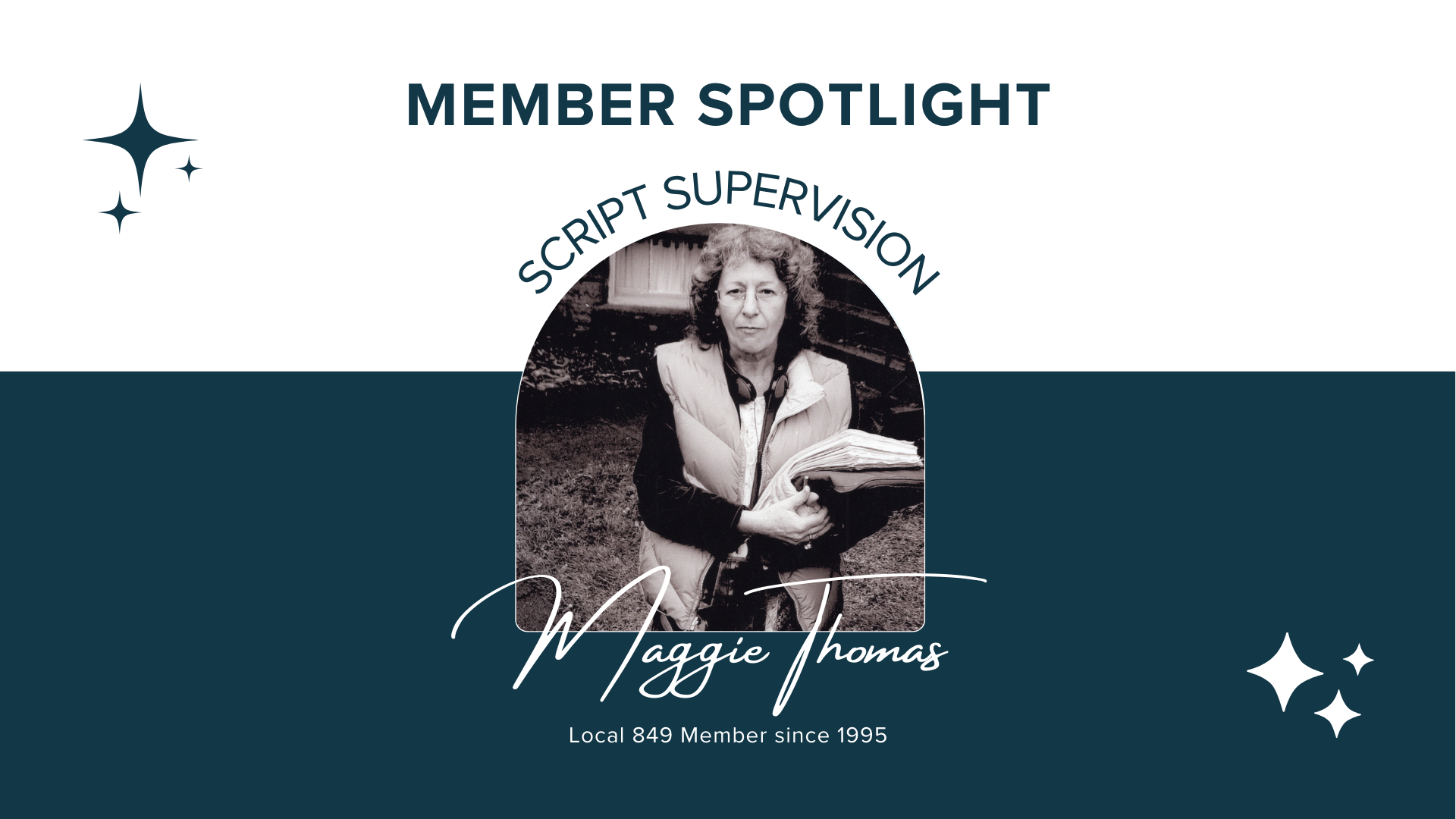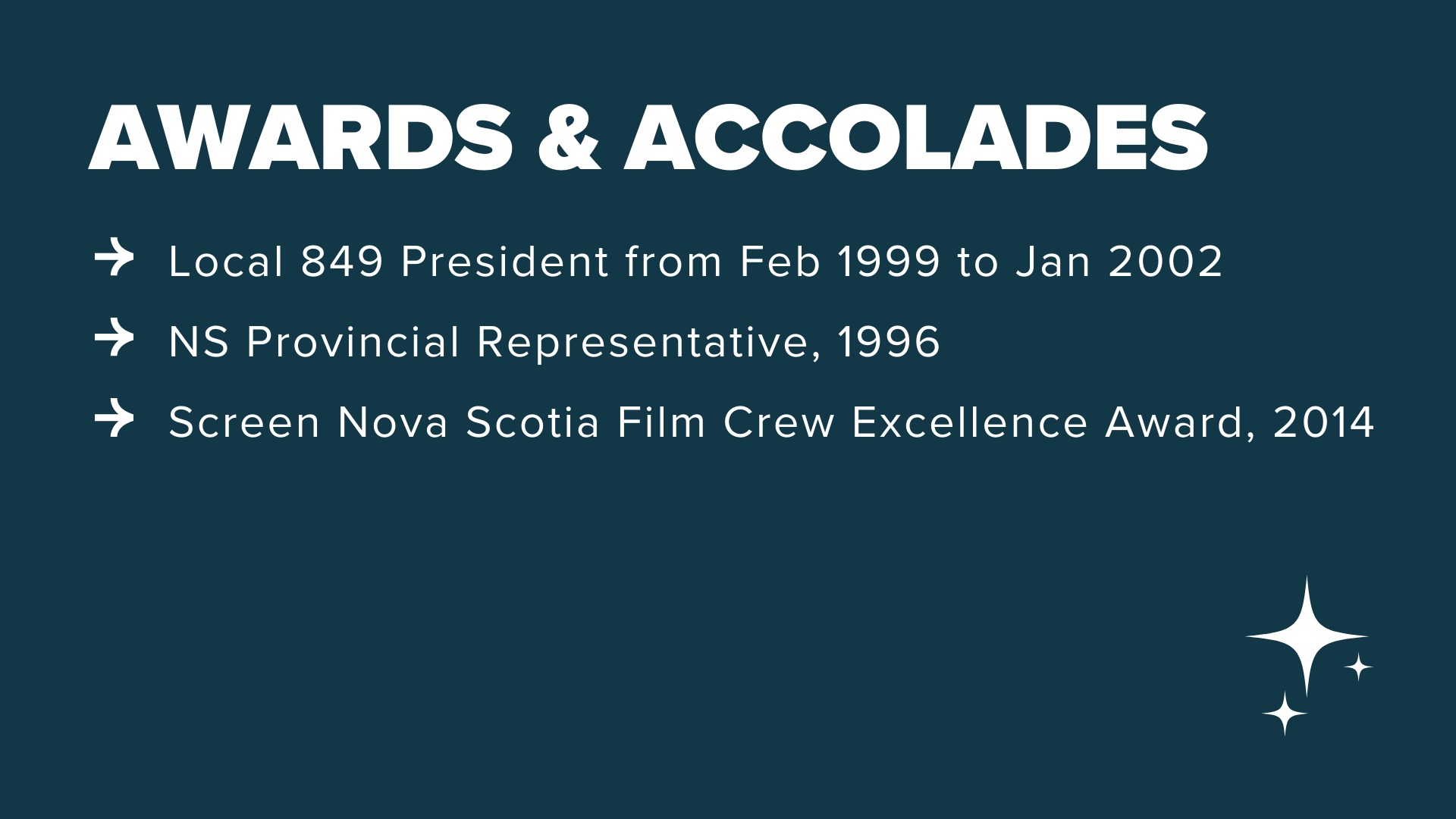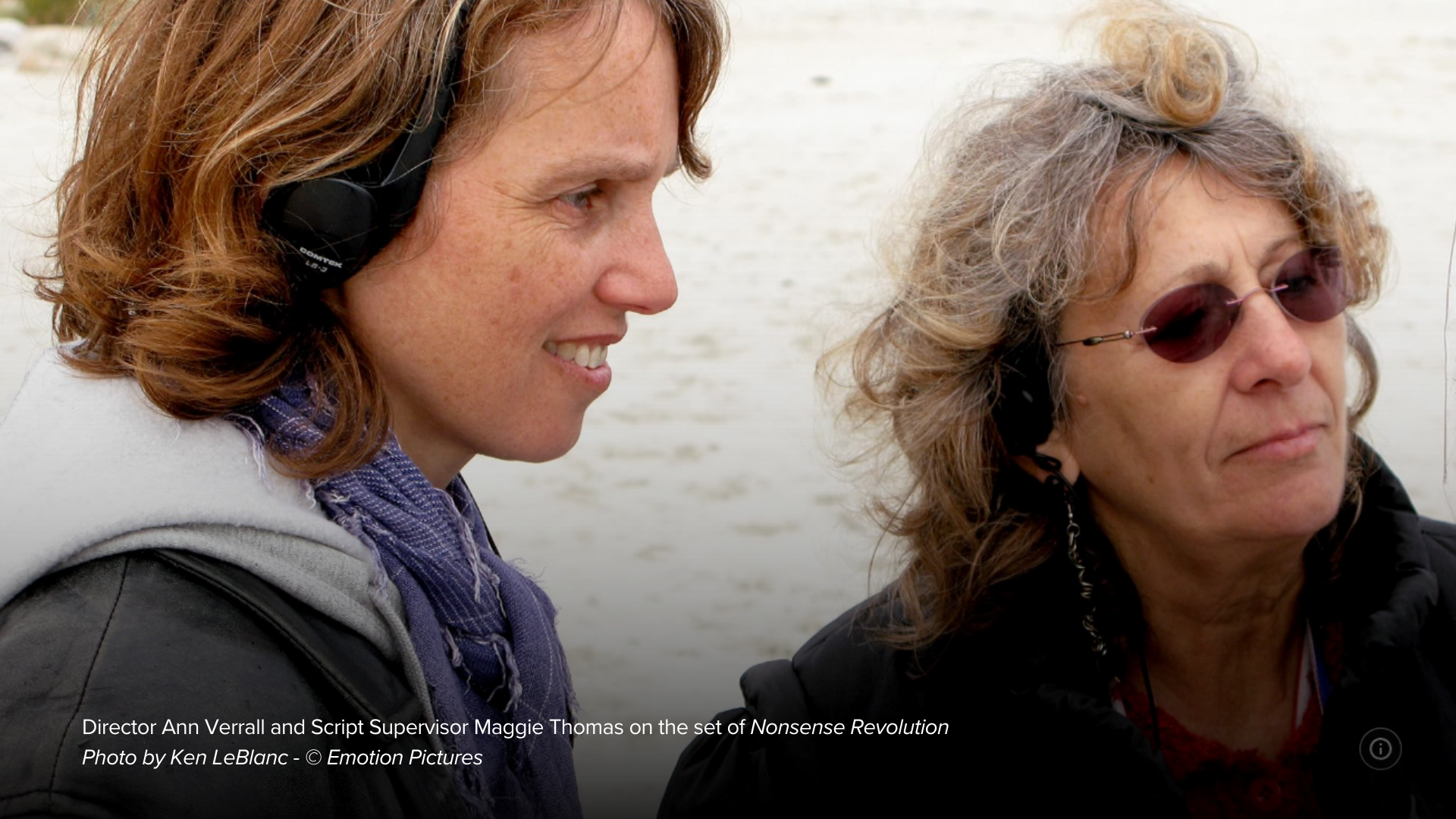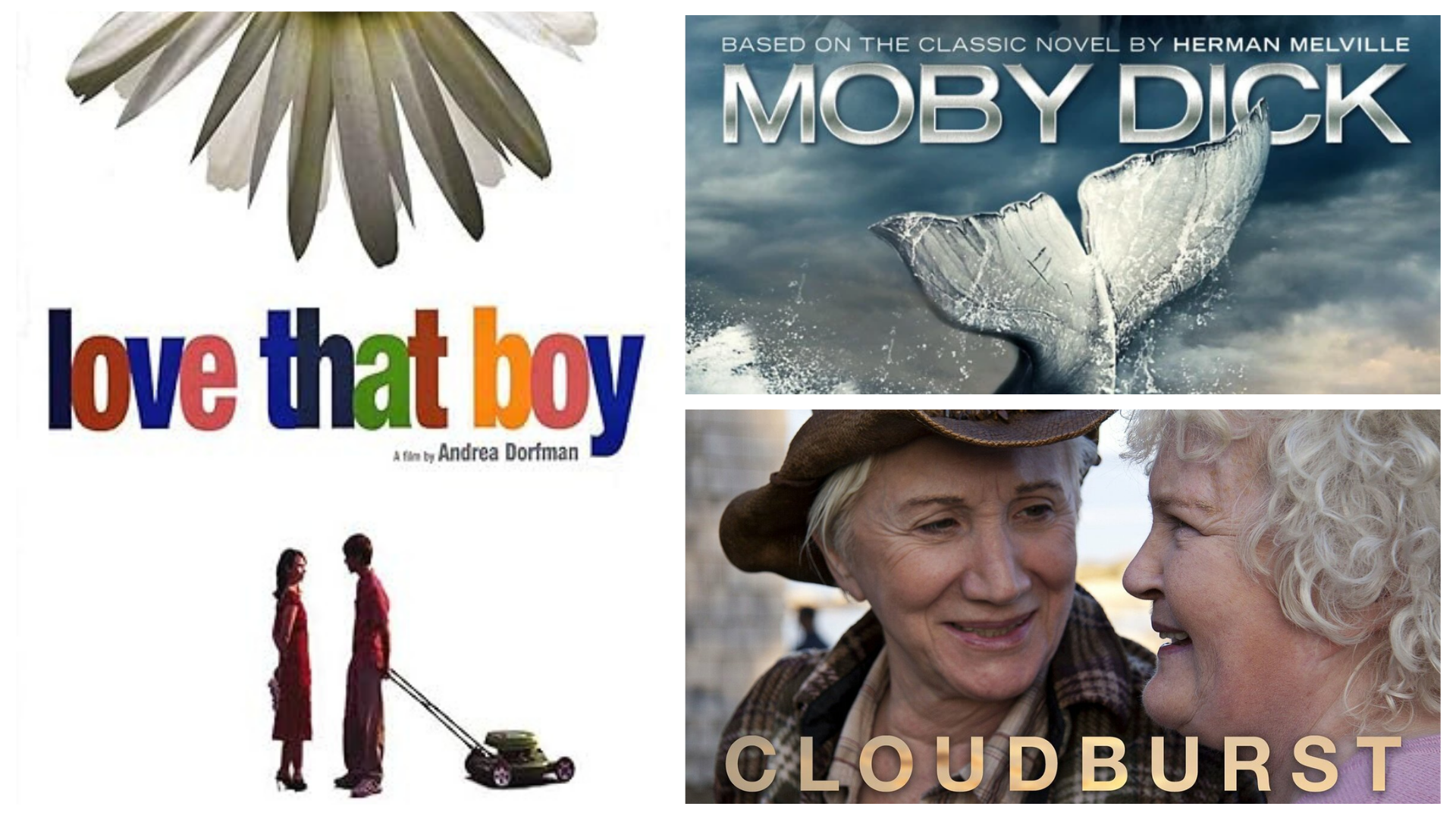
Maggie Thomas describes what it is like to work in a department of one, how the film industry has changed since the '90s, and the highlights of her career as a Script Supervisor.
What is the role of a Script Supervisor in a production:
We are the editor’s representative on the set. Because a film is shot out of story sequence, our job is to help track the storyline and make sure every shot can be used by the editor as they assemble the film and the story. We record information about all the shots and make sure each shot, each take, is labelled on film by the slate so that the editors can find and organize the material.
When I read a script, I naturally develop my interpretation of the story. It can be a delicate line, but it is good to remember I am shooting the director’s interpretation of the story, and that is the story I am there to help maintain. It's said the making of a film goes through three stages. First, the writing, the script. Then the film's realization by the director and actors will bring nuances and enhancements to the writing. Finally, the film is edited. The placement of shots and scenes can further enhance the story or bring changes not evident in the original script. We are there to record the movement of the story from the page and into the film.

What does a typical day look like for you:
There is a whole structure, and it is standard for everyone. Daily, we produce paperwork for the editor that records all the takes and shots with details of camera information, action, and preferred takes. We produce a lined script which shows all the shots on a script page. In prep, we have timed the script. Now, we time the playing out of each scene, compare it with our original time, and see if the film will come in too short or too long.
We also produce daily a production report for the producers, which records the progress of the shooting day, scenes completed, pages of script covered, and the difference in original and master times. Are we on schedule or not?
A lot of paperwork is now made easier by computer programs. Somebody once described the job to me as the clerk of the set. This is the nitty-gritty of the job, but then there is the element of helping monitor the storyline. How closely we work with the director is different on every show; some just want you to record the details, but some like to confer about the story and how a scene is playing out. Various departments can come to ask an opinion of whether a prop should be in a scene if it is not obvious in the story or whether an actor has to wear a jacket or not. All such decisions must go to the director.
Script supervision is a lot of paperwork, and that's the bottom line of it. Somebody told me once that you’re the clerk of the set. That's the really important stuff that you do.

What does your process look like:
As in any job, the job description is the same, but how you approach it depends on your personality. How good you are at noticing things and how you have to support yourself in those areas. I do not take many photos because the representative of each department on set is recording their continuity. But I take extensive notes because writing down details cements them in my head. I have to admit, however, that the screen grabs from the digital world are immensely helpful if you have to hand them over to another script supervisor.
What skills do you need as a script supervisor:
- Organization. Being anally organized, but being able to step out of it too. If things change, we've got to be able to change. We’ve got to keep all this paperwork going, and we've got to hand it in every night.
- Observational skills. Pretty obvious. We are expected to notice everything. Following the script, listening to the words, watching the actors' movements, what they carry, what they do, what the set looks like, how things change during the scene etc, etc.
- The general ability to get along with people. We can seem critical of others if we approach them the wrong way with what we feel is a continuity problem.
- The ability to understand the story.
- The ability to put yourself aside. We are not really a member of the creative team. We are working to help tell a story and to record all the details for the editor, to help bring the editor out of their little dark room and into what is happening on the set. We may not agree with some of the decisions, but we cannot show that. We’re a worker on the floor.
- Love telling stories. I read like crazy. I love a good story and a good journey in which I learn something about human beings and humanity, too. That's what I love in a story.
Why is script supervision different from other departments:
What's hard about it is that you're a one-person department. There is no ability to come in as an apprentice and move up through the ranks because there's no ladder progression. You go in as a script supervisor, and that's it. You're doing it.
We can train people in workshops, but to get people out on set in a way that they are taking some responsibility–because that's the only way you're going to learn– is very tricky. And I've found it very hard to figure out how to do that.
* Local 849 is actively working to create pathways to train new script supervisors and get them working. Sign up for our Trainee Program and/or our Referral Program to learn more.
How did you get started in film:
I just got picked. I was in Toronto and working in wardrobe in the theatre at the time. I was wrapping a show, and Carol Wood, a Costume Designer, came to me and said, “I really like the way you're working, how organized you are, and I need a Wardrobe Supervisor.” So, my first job was as a Wardrobe Set Supervisor. I had no idea about any of it but quickly caught on to continuity. It was a very small film. It was just the designer and myself, and I learned an awful lot from her.
I did wardrobe for seven or eight years in Toronto. I got to know one of the script supervisors very well because we'd been on two or three shoots, and she became a very good friend. And she said to me she thought I was getting bored doing wardrobe. “You're starting to tie one hand behind your back just to make it interesting,” she said, “You don't care what they wear; you care why they wear it.”
She told me to take a course, so I did. For lifestyle choices, my partner and I moved out here (Nova Scotia), and I started script supervising. The film business was really starting to pick up, and I worked a lot in those early days. They'd never had a script supervisor. So I got all the jobs in Atlantic Canada. I've worked in New Brunswick, Prince Edward Island, and Newfoundland. I have only gone away once or twice to do a film somewhere else. I've done all my work here.
How has being a union member influenced your career:
Well, it is my career. I've been in the union from almost the very beginning. I get my work because of union films. I'm on the roster and I get the phone call. If you want to work in this industry, you become a union member because that's the professional side of the industry. There is non-union work, and you're going to have to do that to build your experience and build your days to become a union member. So you do have a taste of that. I was just lucky; at the time in Toronto, when I started, there was so much work. They were just pulling people off the streets, which is who I was. I was just pulled in and signed right away because it was a union shoot, and they just signed me in. I don't remember having to do anything. So it was a different time.

What does being part of Local 849 mean to you:
I come from a background that's very supportive of unions. I come originally from Wales, where belief in unions is hugely strong. So, I think I inherited some of that somewhere along the line. Unions aren’t a way to keep people out of the business. We want professional standards and what we're offering is a profession.
I think in this industry, it's vital to have a union because you are so vulnerable. Producers, some of the time, are struggling to make the film and push people to get that extra shot or go over that extra mile, and it can become abusive very quickly. Unions confront the producers for you so the workplace does not become acrimonious. The union protects us in our workplace.
But being part of a union means being part of a team. We are not just doing our own job; we are all involved in making a film, and in telling a story. I love it when a crewmember comes up and tells me they have read the script and think such and such about it. The possibility of involvement with more than the nitty-gritty of the job is huge.
What makes working in film different from a 9-5:
Firstly, the hours. Some departments work a 12 to 14-hour day. Script supervisors usually work a 12-hour day, with an hour for lunch and an hour after wrap to complete paperwork and prep for the next day.
Jobs can be three weeks or three months long, and then you are unemployed until the next job, which can be uncertain. There is a routine to the paperwork, but each day is unique, bringing different challenges, often in vastly different locations. Anybody working in film has to be very flexible and prepared for anything, especially weather conditions.
In the beginning, you have to have other ways to make other income, which makes it particularly difficult to train people because they generally have a job that they cannot leave to go and do a film for three weeks and then not have a job again. You have to have a mentality that doesn't mind that.
When people say to me, what are you doing next year? I don’t know; I have no idea what next year will be like. I have no idea what two months from now is going to be like. You can't predict anything.
What are some of the biggest changes you’ve seen in the film industry:
We’re now using the term “industry.” It's a workplace. When you say you work in film, everyone goes, “Oh, how exciting.” And yes, it is, in a way. But it's work. It's a job, it's a workplace. You have responsibilities. It isn’t glamorous. You may work with some famous actors, but it is an industry.
That was the hard thing trying to teach the government. When they pulled the tax credit [in 2015] we provided information about how much money came back to the province through the film industry. I think that message has finally come across.
Are there any struggles that you feel that you've come up against during your career:
No, I wouldn't have said I've had any. I think I've had a charmed career, a completely charmed career.
What has made it so charming:
I’ve been very lucky. I’ve worked on a lot of really interesting films. They're not films that have gotten out there much because of distribution problems but [I’ve worked] with some really quirky stories and interesting stuff. We've done some great films here. And I've worked on quite a few of them.
I suppose the things I remember are the things that took me to places I'd never have gone otherwise in my life. Working on Sea Wolf and Moby Dick, sailing on those boats, those big three-masted ships. It was incredible. It was just amazing. For Mary Silliman's War, they brought in all these reenactment soldiers. This battalion came up from The States, people who were reenactors, and came to march and play the British Army invading. It was just amazing.
There was another film we shot in a disused mental institution, and that was a very moving experience when you thought about all those people who had lived in that place. It was an awful, awful building, but it had such a strong vibe to it. It was very moving, being there. So it's those things.
What do you do when you’re not on set:
I still make clothes for myself and my friends. I've been part of a group of the Lunenburg County Film Series. For 11 years, we have been bringing in films from the TIFF Film Circuit to the Bridgewater Cineplex. A movie a month from September until April.
Unfortunately, the Cineplex closed this year, and we are trying to regroup at the Astor Theatre in Liverpool.
What excites you about the future of the film industry:
The idea of the film industry becoming a much more secure industry where people can stay here, work, have families, and live in the Maritimes. The growth of telling our own stories. I very much like working on homegrown films rather than those that come in from away. We have made some very quirky and very lovely films here, and I have had the privilege to work on many of them and look forward to watching many, many more.
